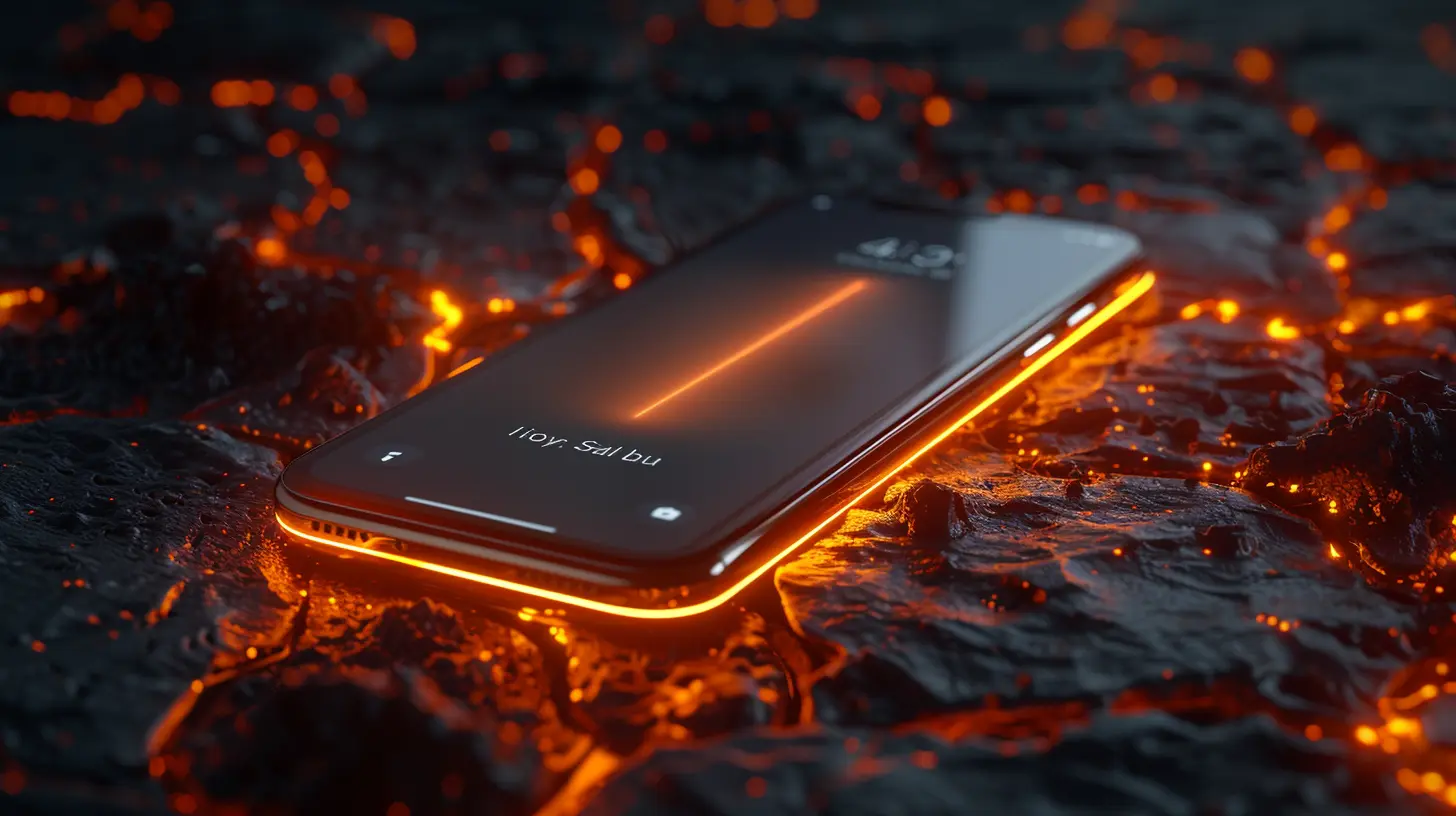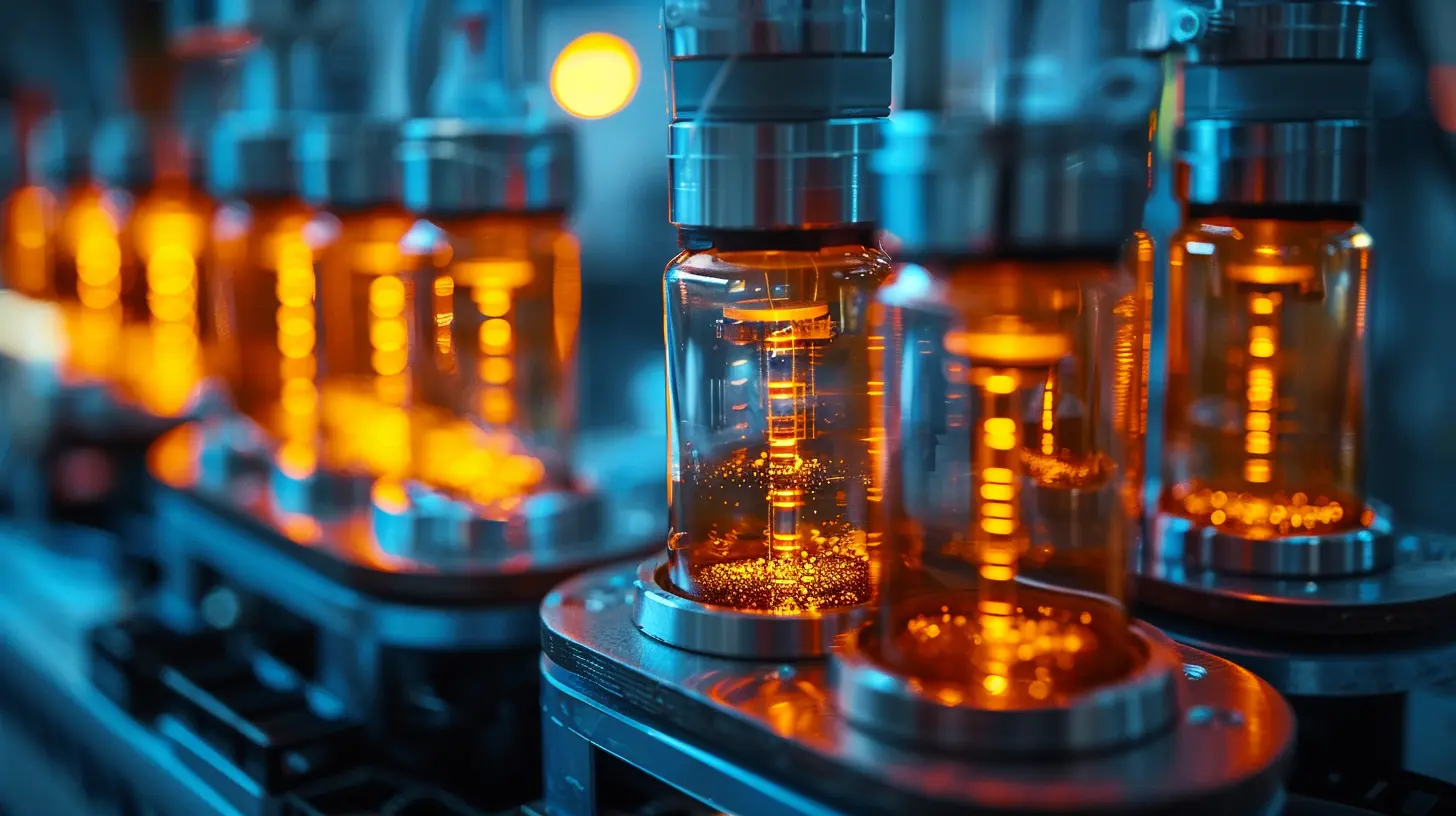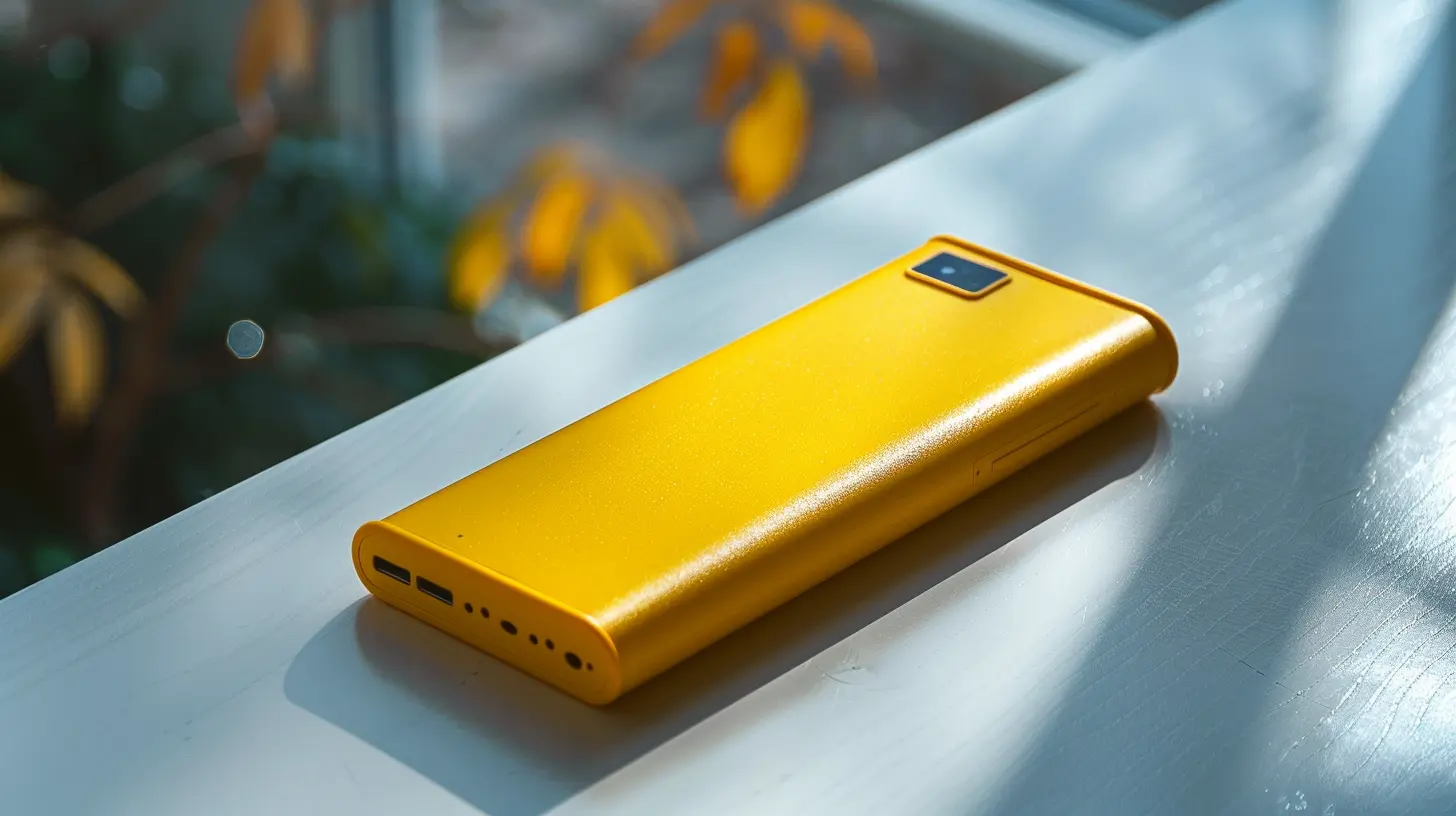Will Lithium-Sulfur Batteries Replace Lithium-Ion?
25 May 2025
When it comes to powering our ever-growing collection of gadgets and electric vehicles (EVs), lithium-ion batteries have been the reigning king for quite some time. They’re in our smartphones, laptops, and Teslas, making them an essential part of modern-day life. But lately, there's been a buzz around something new: lithium-sulfur batteries. These batteries are said to hold the potential to unseat lithium-ion and revolutionize the energy storage game.
So, what’s the deal? Could lithium-sulfur batteries really replace lithium-ion? Let’s break it down and explore the possibilities.

A Quick Refresher: What Are Lithium-Ion Batteries?
Before jumping into lithium-sulfur batteries, let’s quickly refresh our memory on what lithium-ion batteries are and why they’re so popular.Lithium-ion batteries (Li-ion) are rechargeable batteries that have been around since the early 1990s. They’ve become the go-to power source because they offer a high energy density, meaning they can pack a lot of power into a small space. That’s why they’re perfect for portable electronics, from phones to power tools, and why they’re the current standard for electric vehicles.
In simple terms, Li-ion batteries work by shuffling lithium ions between the positive electrode (cathode) and the negative electrode (anode) through an electrolyte. When you charge the battery, the ions move in one direction; when you use the battery, they move back.
Sounds cool, right? But like most technology, it has some limitations. Li-ion batteries degrade over time, they’re expensive to produce, and they have safety concerns, such as a tendency to overheat or even explode in rare cases. And this is where lithium-sulfur (Li-S) batteries could come into play.

What Are Lithium-Sulfur Batteries?
Lithium-sulfur batteries are another type of rechargeable battery, but they work a bit differently. Instead of using lithium cobalt oxide or lithium manganese oxide for the cathode (like in Li-ion batteries), Li-S batteries use sulfur. And sulfur is, well, dirt cheap compared to the materials used in lithium-ion batteries. That’s one of the big selling points.The basic working principle of a Li-S battery involves lithium ions moving between a sulfur cathode and a lithium-metal anode through a liquid or solid electrolyte. During discharge, the lithium reacts with sulfur, forming lithium sulfide compounds. This reaction can theoretically store a lot more energy than Li-ion batteries, which is why Li-S batteries are being hyped as the next big thing.
But before we get too excited, let’s dive deeper into the pros and cons of lithium-sulfur technology.

Advantages of Lithium-Sulfur Batteries
1. Higher Energy Density
One of the biggest reasons why lithium-sulfur batteries have caught the attention of researchers and tech companies alike is their potential for a significantly higher energy density. In theory, Li-S batteries could offer up to 5 times the energy density of traditional lithium-ion batteries.Imagine your phone lasting five days on a single charge, or an electric vehicle that can drive 1,000 miles before needing a recharge. Sounds like a dream, right?
2. Cost-Effective Materials
Sulfur is way cheaper than the materials used in lithium-ion batteries, like cobalt or nickel. In fact, sulfur is one of the most abundant elements on Earth. This could make Li-S batteries more economical to produce, helping to reduce the cost of electric vehicles and other battery-powered gadgets. And let’s be honest, who wouldn’t love more affordable tech?3. Environmentally Friendly
Not only is sulfur cheap, but it’s also more environmentally friendly compared to the metals used in Li-ion batteries. Mining for cobalt and nickel has been linked to environmental degradation and even human rights abuses. By using sulfur, Li-S batteries could offer a more sustainable and ethical way to power our future.4. Lighter Weight
Lithium-sulfur batteries are lighter than their lithium-ion counterparts. This is especially important for electric vehicles, where every pound counts. A lighter battery not only improves energy efficiency but also enhances performance, whether it's a faster car or a more portable gadget.
Challenges Facing Lithium-Sulfur Batteries
Sounds like lithium-sulfur batteries are a no-brainer, right? Well, not so fast. Despite their potential, Li-S batteries face several challenges that have prevented them from replacing lithium-ion so far.1. Short Lifespan
One of the biggest hurdles for lithium-sulfur batteries is their short lifespan. While they pack a punch when it comes to energy capacity, they degrade quickly. After only a few charge and discharge cycles, the sulfur cathode starts to break down, reducing the battery’s overall performance.In other words, while a lithium-sulfur battery might give you more energy upfront, you could be replacing it way more often than a lithium-ion battery. That’s not exactly convenient for consumers or companies looking to build reliable products.
2. Low Efficiency
Although Li-S batteries can store more energy, they aren’t as efficient as Li-ion batteries, at least not yet. They suffer from something called the “polysulfide shuttle effect,” where certain sulfur compounds dissolve into the electrolyte and cause energy loss. This drastically reduces the battery’s efficiency and lifespan.Researchers are working on ways to mitigate this issue, but it’s still one of the major roadblocks preventing Li-S batteries from becoming mainstream.
3. Safety Concerns
While lithium-sulfur batteries don’t have the same overheating issues that Li-ion batteries do, they aren’t without their own risks. The use of a lithium-metal anode in Li-S batteries can lead to the formation of dendrites—tiny, needle-like formations that can cause short circuits and potentially lead to battery failure or fires.This is a serious issue, especially when you consider that safety is one of the key factors consumers look for in new technology.
Current Developments in Lithium-Sulfur Battery Technology
All of this begs the question: If lithium-sulfur batteries have so many challenges, why are people still working on them? Well, the potential benefits are just too big to ignore, and many companies and research institutions believe that the hurdles can be overcome.1. Improved Cathode Design
One area of ongoing research is improving the design of the sulfur cathode. By adding conductive materials or creating novel nanostructures, scientists are trying to make the sulfur more stable and less prone to degradation. Some promising results have been achieved in the lab, but scaling these solutions for mass production remains a challenge.2. Solid-State Electrolytes
Another area of development is the use of solid-state electrolytes. Traditional batteries use liquid electrolytes, which contribute to the polysulfide shuttle effect and safety concerns. Solid-state electrolytes could help mitigate these issues by preventing polysulfides from dissolving and stopping the formation of dangerous dendrites.While solid-state technology is still in its early stages, it’s seen as the holy grail for future battery development, whether we’re talking about lithium-sulfur or lithium-ion batteries.
3. Commercialization Efforts
Several companies are actively working to bring lithium-sulfur batteries to market. For instance, the UK-based company OXIS Energy has been developing Li-S batteries for use in aviation and electric vehicles. Meanwhile, other startups and academic institutions are making strides in improving the longevity and efficiency of these batteries.While we’re not quite there yet, the race is on, and advancements are being made every year.
Will Lithium-Sulfur Batteries Replace Lithium-Ion?
So, will lithium-sulfur batteries replace lithium-ion? The short answer is: maybe, but not anytime soon.Lithium-sulfur batteries have a lot of potential, especially when it comes to energy density and cost-effectiveness. But the technology isn’t quite ready for prime time yet. The short lifespan and efficiency issues are significant roadblocks, and until those are solved, lithium-ion batteries will likely remain the go-to for most applications.
That said, lithium-sulfur batteries could carve out a niche in specific markets, like aerospace or long-range EVs, where their high energy density could be a game-changer. And as research continues, we may very well see Li-S batteries become more widespread in the years to come.
For now, though, it looks like lithium-ion is here to stay, at least for the foreseeable future.
Final Thoughts
Lithium-sulfur batteries are incredibly promising, but like all emerging technologies, they come with their own set of challenges. While they could potentially replace lithium-ion in certain applications, we’re still several years (maybe even decades) away from them becoming the new standard.That being said, the battery world moves fast, and breakthroughs are happening all the time. So, who knows? The next big thing could be just around the corner.
all images in this post were generated using AI tools
Category:
Battery TechnologyAuthor:

Vincent Hubbard
Discussion
rate this article
3 comments
Nathan Rodriguez
Lithium-sulfur batteries have the potential to revolutionize energy storage with their higher energy density and lower costs. While they’re not an immediate replacement for lithium-ion, continued advancements in technology and manufacturing can pave the way for their mainstream adoption in the near future.
June 4, 2025 at 10:54 AM

Vincent Hubbard
You're right! Lithium-sulfur batteries do hold promise for the future of energy storage, but significant advancements are still needed before they can compete with lithium-ion batteries on a large scale.
Amber Tucker
Great read! It's exciting to think about the potential of lithium-sulfur batteries. They could really change the game with their higher energy density and lower costs. However, I wonder how long it’ll take to overcome the current challenges. Can't wait to see what the future holds for battery tech!
May 27, 2025 at 3:59 AM

Vincent Hubbard
Thank you! You're right; lithium-sulfur batteries hold great promise, and while challenges remain, ongoing research is rapidly advancing. Exciting times ahead for battery technology!
Cash Newton
Exciting potential, but challenges remain significant.
May 26, 2025 at 4:46 AM

Vincent Hubbard
Absolutely, while the potential of lithium-sulfur batteries is promising, addressing the technical challenges will be crucial for their successful adoption.



